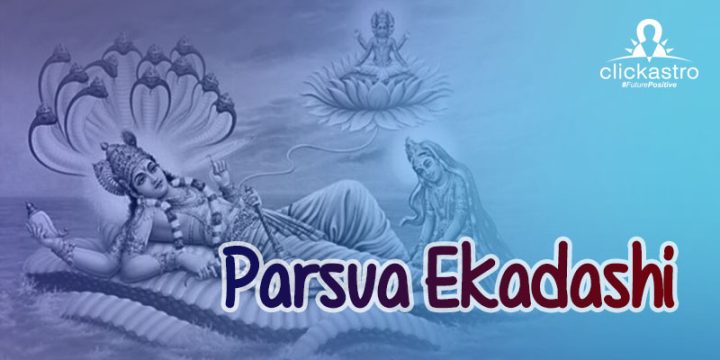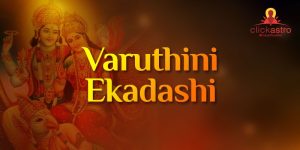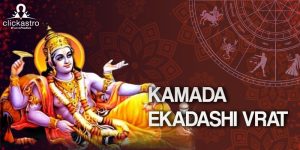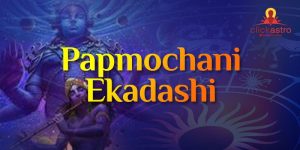Contents[hide]
What is Parsva Ekadashi?
In the traditional Vedic lunar calendar, Parsva Ekadashi is the Ekadashi Tithi (11th lunar phase) in the Shukla Paksha or bright fortnight of the Bhadrapada month. It falls in August or September according to the Gregorian calendar. For devotees of Vedic culture, Parsva Ekadashi is a holy day. This day, like every other Ekadashi, is dedicated to Lord Vishnu. During the festival, devotees observe vrat (fasting), pujas, and other auspicious deeds.When is Parsva Ekadashi 2024
In 2024, Parsva Ekadashi falls on Saturday, September 14.
Auspicious Timings on Parsva Ekadashi
- Sunrise: September 14, 2024 6:17 AM
- Sunset: September 14, 2024 6:27 PM
- Ekadashi Tithi Starts: September 13, 2024 10:30 PM
- Ekadashi Tithi Concludes: September 14, 2024 8:41 PM
- Dwadashi End Moment: September 15, 2024 6:12 PM
- Hari Vasara End Moment: September 15, 2024 2:04 AM
- Parana Time: September 15, 6:17 AM – September 15, 8:43 AM
What is the Significance of Parsva Ekadashi?
The religious and astrological significance of Parsva Ekadashi are numerous. Its significance is explained in detail in the Brahma Vaivarta Purana in the form of a conversation between Lord Krishna and King Yudhishthira. Parsva Ekadashi falls on Dakshinayana Punyakalam, which is when the Sun rises in the southeast. The beginning of Dakshinayana, or the Sun’s 6-month southward movement while rising in the east, is marked by the Karka Sankraman or Karkataka Sankranti (the Sun’s transit to Karka Rasi or Cancer). In Deva Loka, this is considered night-time (the realm of gods). This is also considered to be the deities’ night. Because it falls during the Chaturmas period, the Parsva Ekadashi is considered extremely auspicious. The Chaturmas period continues for four lunar months, starting with Shayani Ekadashi (Shukla Paksha Ekadashi of Asadha month) and concluding with Prabodhini Ekadashi (Shukla Paksha Ekadashi of Kartik month). Shravana, Bhadra, and Ashwin are the months between these two events. This period corresponds to the rainy season in India, and the devas are said to be at rest during this time. The most sacred of the Chaturmas Ekadashis is Parsva Ekadashi, which is the Shukla Paksha Ekadashi of Bhadra month. The virtues gained by observing vrat on this occasion are thought to be of high spiritual value. According to legend, Lord Vishnu sleeps for four months, beginning with Devshayani or Shayani Ekadashi and ending with Devottan or Prabodhini Ekadashi. The Parsva Ekadashi, which falls between these dates, is the time when the Lord who is at rest shifts his position from left to right. Parsva Ekadashi has been observed since ancient periods. The various rituals performed on this occasion are said to bestow great virtues. The holy Parsva Ekadashi vrat/fast is the most commonly observed ritual on this day. It is believed that those who observe this vrat will receive the divine blessings of Lord Vishnu, the universe’s preserver. This brings happiness, prosperity, and good health to the devotee. According to widespread belief, by observing the Parsva Ekadashi Vrat, the devotee will be granted atonement for all his past sins and will achieve Moksha, or liberation from the cycle of birth and death.What are the Rituals of Parsva Ekadashi?
Fasting, pujas, prayers, and chanting of sacred scriptures are all part of the Parsva Ekadashi rituals. The vrat is the most important of these observances. The Parsva Ekadashi Vrat is observed from Ekadashi sunrise to Dwadashi Tithi. Because a complete fast is advised, a devotee can begin the vrat at the sunset of the previous day (Dashami day) to ensure that no undigested food remains in the stomach. Devotees should wake up before sunrise on Ekadashi day and take a holy bath. They must either visit a Vishnu temple or worship the Lord at home with flowers, sandal paste, and incense sticks after taking a bath. Those who are unable to fast completely can maintain a partial fast by consuming fruits, nuts, and water. Grain, rice, and beans are prohibited on Parsva Ekadashi. Even those who are not fasting should avoid eating and cooking pulses, grains, and non-vegetarian food. Fruits, vegetables, nuts, and dairy products are all permitted. An important Ekadashi ritual is the worship of Lord Vishnu. If at all possible, fasting devotees should visit Lord Vishnu’s temples. During the fast, chanting divine mantras and reciting holy scriptures such as the Bhagavad Gita, Satyanarayan katha, and Vishnu Sahasranama (1000 names of Vishnu) are considered very auspicious.Parsva Ekadashi Vrat
According to the archaic legends , those who observe Parsva Ekadashi Vrat with devotion will receive the blessings of Lord Vishnu. They will be granted happiness, prosperity, and good health, as well as forgiveness for their previous sins. It is also considered that they will also be freed from the cycle of death and rebirth. The observance of Parsva Ekadashi Vrat entails more than just fasting or abstaining from food. The observer should avoid negative thoughts and actions. One should only think and do positive things that bring them closer to God. This is why reading and assimilating sacred scriptures is recommended for those fasting.Parsva Ekadashi Fasting Procedure
Parsva Ekadashi fasting methods entail the following:- The devotee can begin fasting from the previous day’s (Dashami day’s) sunset to ensure there is no undigested food in the stomach on Ekadashi day
- In Ekadashi, the devotee should wake up before sunrise, take a bath, and worship Lord Vishnu.
- If possible, they should visit a Lord Vishnu temple and offer their prayers.
- They must recite holy scriptures such as Vishnu Sahasranama, Bhagavad Gita, and others to help strengthen the spiritual force.
- The devotee should bathe the following morning (Dwadashi), worship Lord Vishnu, and break the fast during the Parana period.
- Donating food and money to the Brahmins, the poor and the needy during Ekadashi is considered to bestow auspicious gains.
Permitted Foods/Spices:
Fruits, vegetables, nuts, milk, coconut, potato, sweet potato, cassava, buckwheat, pepper, ginger, olive, sugar, rock salt, etc.Foods/Spices that are prohibited:
Non-veg food, beverages (tea, coffee, cola, and other energy drinks), mushrooms, grains, peas, beans, sesame seeds, tulsi, mustard, asafoetida, cloves, fenugreek, cardamom, nutmeg, fennel, onion, tamarind, custard, salt, baking soda, baking powder, etc. Fasting on Ekadashi for two consecutive days is recommended for ardent devotees and mystics seeking moksha. In general, Smartha or those with family are advised to observe vrat only on the first day.Parsva Ekadashi Vrat Katha
The Parsva Ekadashi legend is associated with King Mahabali and Lord Vamana. Mahabali, the demon king, was a powerful ruler who ruled over Earth, Heaven, and the Netherworld. Despite being an Asura, he was a devout follower of Lord Vishnu and was well-known for his love and benevolence to his people. The devas, on the other hand, were displeased with him because he had defeated them, and also due to his growing power and popularity. As a result, the devas sought Lord Vishnu’s assistance in driving out Mahabali. The Lord assumed the form of a dwarf. Brahmin (Vamana) went to King Mahabali and requested three strides of land. When the king granted his wish, Vamana grew enormously large and covered heaven and earth with his first two strides, leaving no room for the third. King Bali, having realised Vamana’s true identity, bowed his head for the third step. Lord Vamana then pressed him into the Patala Loka (netherworld) and granted him salvation. It is fascinating to note that the Onam festival (the state festival of Kerala) follows the same legend and takes place around the same time of year.Parsva Ekadashi Dates from 2024 to 2027
| Year | Day | Date |
| 2024 | Saturday | 14-Sep-24 |
| 2025 | Wednesday | 3-Sep-25 |
| 2026 | Tuesday | 22-Sep-26 |
| 2027 | Saturday | 11-Sep-27 |









